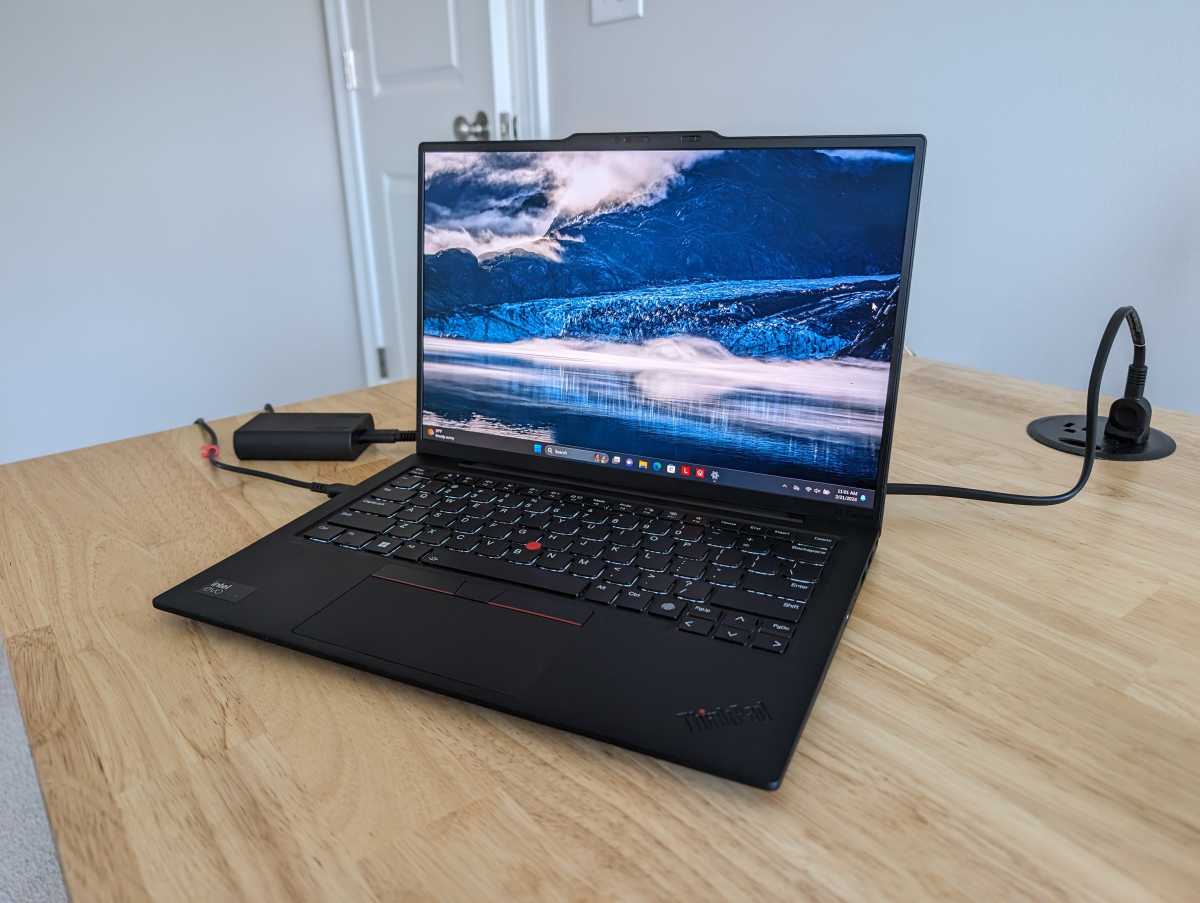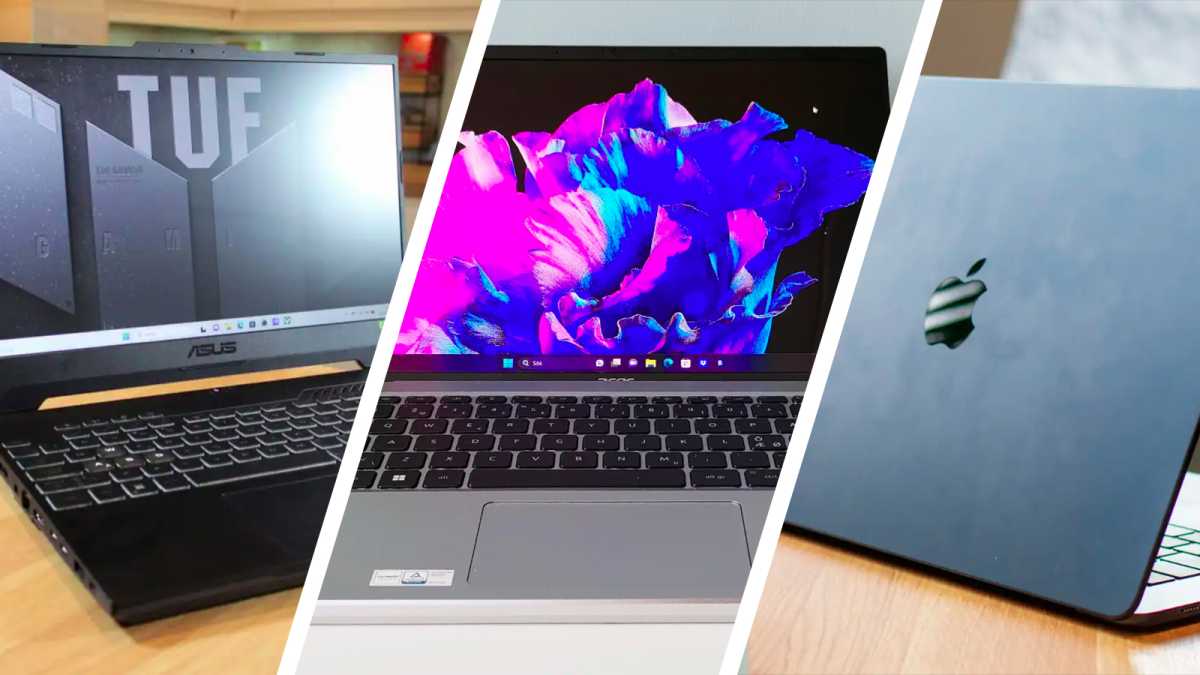Laptop sticker prices don’t really matter. Yes, obviously the price you pay for a laptop matters, but a laptop’s “manufacturer-suggested retail price” (MSRP) isn’t something you should focus on when picking your next laptop.
If you’re buying a laptop, you’ll get the most value from focusing on sales. Let’s say you have $1200 to spend on a gaming laptop. The best gaming laptop for your dollar might not be a $1200 laptop at all — it might be a $1600 laptop that’s currently $500 off.
In fact, the best value may be snatching up last year’s laptop on a clearance sale. Laptop hardware isn’t advancing very quickly year over year. A laptop from last year might be roughly as good as one from this year — and half off, too.
Further reading: Today’s best laptop deals: Save big on work, school, home use, and gaming
Why manufacturer-set laptop prices don’t really matter
Michael Crider/Foundry
We review a lot of great laptops here at PCWorld. Often, I find myself wanting to write something like “This laptop is a tad expensive, but if you can find it at a good price, it’s an excellent piece of hardware.”
This happens frequently with gaming laptops, but it applies to all laptops. When reviewing a laptop, I must evaluate its manufacturer-set retail price against other similarly priced laptops. I may give a laptop a thumbs up for being a good value compared to the competition at its manufacturer-set price.
As I do it, I often cast an eye at PCWorld’s laptop deals page and notice that the best deal is a laptop with similar hardware that’s on sale for hundreds of dollars off. It’s not fair to say a particular laptop isn’t a good value just because a competing laptop happens to be on sale at the moment I’m writing the review, but it happens frequently.
If you’re buying a laptop, you’ll get the best value by shopping the sales. Don’t buy a laptop just because it’s on sale — look at the reviews for a laptop that’s on sale so you’re sure you’ll be happy with it. But you’ll find the best value by starting with the sales.
Laptops are constantly going on big sales

The ThinkPad X1 Carbon is a nice high-end laptop. Lenovo has sold last year’s model for $1000 off.
Chris Hoffman/IDG
Laptop sales are common — and frequent. You don’t have to wait for the big Black Friday or back-to-school sales events. (Although, if you are shopping for a laptop around those events, you may want to wait for them — you’ll find more laptops than usual on sale when big events like those arrive.)
But even if you’re looking for a new laptop this week, there’s a good chance you’ll find lots of great options on sale right now. Manufacturers are constantly putting laptops on sale to stand out in the market and to free up space for new models.
And these sales can be huge. Gaming laptops frequently go on sale for $500 or more off. Laptops from last year that often offer very similar performance to this year’s laptops may be on sale for 50 percent off on clearance events.
For example, Lenovo’s ThinkPad X1 Carbon is a great laptop with excellent build quality and an awesome keyboard. But at over $2000, it’s rather pricy. As I write this, Lenovo has the previous-generation ThinkPad X1 Carbon Gen 11 model for $1007 off. At $1391, it’s a serious value if you’re looking for a high-end, rugged, ultraportable business laptop.
That sale may be expired when you’re reading this, but there may be another amazing laptop we like for $1000 off right now. Check out our favorite laptop deals (where our ThinkPad X1 Carbon example came from!) to learn more.
Even just-released laptops might already be on sale
In fact, some laptops seem to be almost permanently available at a discount on certain manufacturers’ websites. A laptop may launch with an official $1400 MSRP but be available at a “promotional” price of $1200 on the laptop manufacturer’s online store — complete with the $1400 proudly crossed out and a “$200 off” sale tag.
If your budget is $1200, there’s no sense writing off that laptop just because it technically has a $1400 MSRP. It might almost always sell for $1200!
Laptops may even already be on big sales close to their release dates. When I reviewed the HP Omen Transcend 14 laptop around its launch date earlier this year, it was already on sale for $300 off. Maybe you thought $1499 was too much for that laptop. But there’s no sense focusing on that retail price: Even if you have bought one around launch, you could have spent $1199. If you’re keeping an eye on sales, you may not even have to wait for a newly released laptop to be available at a discount.
Last year’s laptop models on clearance sales are an amazing deal
Here’s another fact that PC manufacturers often don’t trumpet: This year’s laptop model and last year’s laptop model are often extremely similar. This year’s version might be a little bit faster — maybe.
That’s because PC hardware isn’t advancing by leaps and bounds each year.
Take CPUs, for example. Intel launched Meteor Lake Core Ultra CPUs in late 2023. They’re more focused on efficiency, battery life, and AI. They perform similarly to last year’s 13th-generation Raptor Lake CPUs. Many laptops that aren’t focused on battery life — like gaming laptops — are actually using 14th-generation Core HX chips that perform very similarly to the 13th-generation hardware.
The one advantage you get with a Core Ultra-powered CPU is the neural processing unit (NPU) for accelerating AI PC tasks, but how much that actually matters is unclear — we’ll have to see what Microsoft announces and delivers later this year. Right now, it doesn’t add much.
Let’s talk about graphics hardware: The latest gaming laptops with Nvidia GPUs have Nvidia GeForce RTX 40-series GPUs (the GeForce RTX 4050, 4060, 4070, 4080, and 4090.) Those are state-of-the-art graphics processors in early 2024-era gaming laptops. 2023-era gaming laptops have the exact same GPUs — the 40-series mobile GPUs came out in early 2023 and Nvidia hasn’t announced anything new.
In other words, if you’re buying a gaming laptop, a gaming laptop that came out in early 2023 might have almost the same hardware as a gaming laptop that launched in early 2024 — a very similar CPU and the same selection of GPUs. If you can find a very similar gaming laptop from last year at a big discount compared to this year’s model, why wouldn’t you buy it instead?
Of course, it’s worth focusing on other things as well — the laptop’s display, keyboard, storage, and other factors. That’s why you should check reviews before buying a laptop. But a laptop from last year might even have a nicer display than a laptop from this year. Don’t dismiss it just because it’s technically a year older.
How to find the best laptop sales

Anyron Copeman / Foundry
PCWorld’s list of laptop deals is the perfect place to find excellent laptop sales. We’re scouring the web for deals every weekday and sharing the ones we think are the best.
Our page isn’t just updated frequently — we also only list laptops we like and recommend, complete with a description of what we like about each laptop. Whether you’re looking to spend a few hundred bucks on an inexpensive laptop for web browsing, you want a sleek ultraportable, or you’re trying to get the most gaming performance for your dollar, it’s the perfect place to start your laptop shopping.
Of course, you don’t have to start with our deals page. But if you go elsewhere, be sure to do some research — we’re only trying to recommend the best deals on laptops we think are worth buying. Other sites — especially online stores — may push sales on laptops that are not all that great.
As I write this, our laptop deals page has a high-end ThinkPad ultraportable at $1007 off, gaming laptops for as much as $700 off, and a capable lightweight laptop for $600 off. It also has inexpensive laptops for everyday tasks at nearly $200 off, bringing them to around the $249 mark.
Who knows which laptops will be on sale by the time you read this? Check out PCWorld’s list of the best laptop deals to see what’s available right now.
Want more PC advice? Subscribe to my free Windows Intelligence newsletter to get all the latest tips, tricks, and news sent straight to your email inbox.



